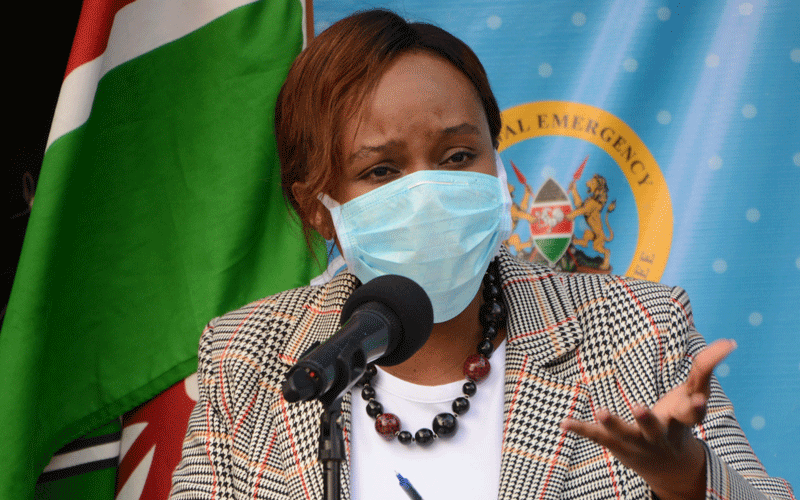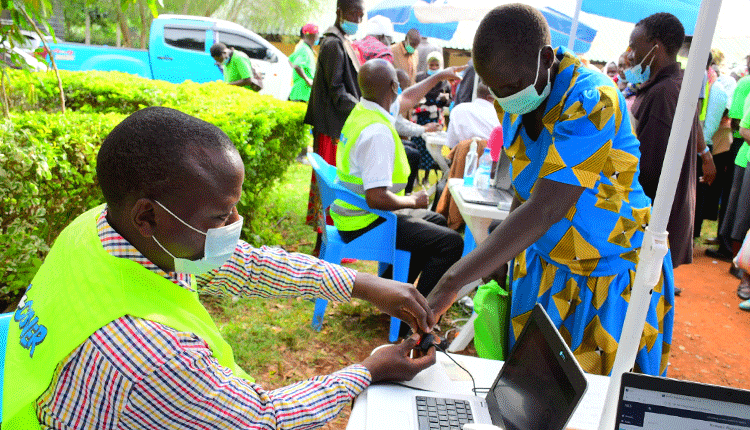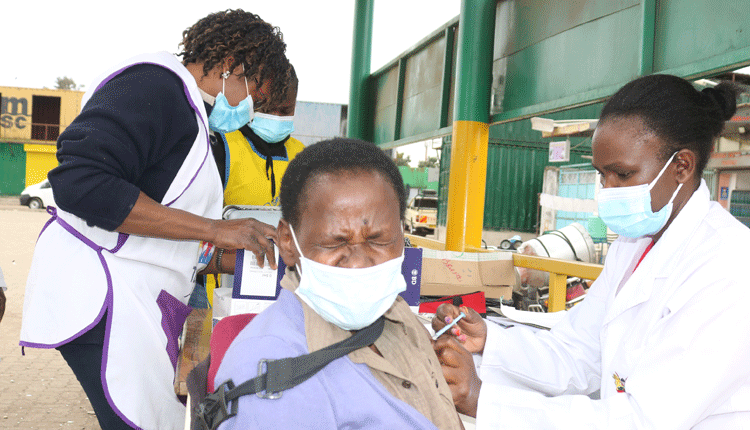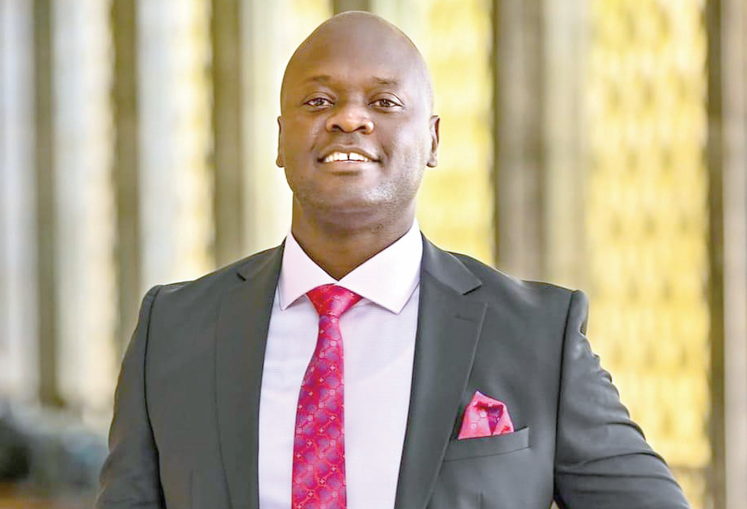Mwangangi: Coronavirus is going nowhere, live with it

Reuben Mwambingu @reubenmwambingu
Following the World Health Organisation’s (WHO) warning that coronavirus “might be here to stay”, it now boils down on options left to bring life back to normal, and at the same time, ensure the danger posed by the virus is minimised to safe levels.
So far, close to 300,000 people worldwide have succumbed to the virus, with confirmed infections surging towards 4.5 million. Kenya had confirmed 912 positive cases by yesterday.
For many, it is, therefore, almost unthinkable to imagine a normal life with the virus living within us.
Ministry of Health officials yesterday concurred with WHO’s supposition regarding the Covid-19
Last week, Chief Administrative Secretary Mercy Mwangangi said modelling by experts at the ministry matches with the WHO projection that the virus might not be eradicated completely.
Staying put
“If we look at our various modelling, the picture remains true. Indeed this virus may be with us for a long time to come, and therefore, it requires us; one, to maintain our current containment measures.
“Two, we can actually chat our way forward on how we can actually live with corona. I’m sure you have seen other countries are putting in play interventions as how they can continue with a new normal because it will be back to the old days. This is a new normal. The same measures are being evaluated within the country,” Mwangangi explained.
She took a case with how HIV/Aids afflicted the country and the world in the 1980s, but soon the world learnt how to mitigate it and live with it positively, saying even with Covid-19, “we shall do the same.”
“What we need is your cooperation in maintaining the containment measures and adhering to the simple instructions of hand washing, masking and physical distancing. And indeed, different countries are all in a journey plotting how a new normal will look like,” she noted.
Health acting Director General Patrick Amoth said the virus was likely to be endemic going forward, saying, “We will have to adapt our lives with the virus in consideration.”
In the light of the revelation, economists envision the economic future of the country as bleak since currently, “We are looking at a depressed economy occasioned by various stalled key sectors of the economy.”
“Currently, we are reeling with the after effects of the pandemic… We are not exporting horticultural and flowers products to Europe, we are not exporting as much coffee and tea as we used to.
Generally, the global supply chain has been affected and this has put the country into a very awkward position in terms of foreign exchange results.
Economic effects
“This means the government will be affected in terms of revenue and the policies put in place by the President reduced the coporate tax and Pay As You Earn for low income earners also means that there will be no revenue as projected when the budget was being planned in the previous year,” explained Odhiambo Ramogi, a Kenyan economist and CEO of Elim Capital.
He also envisioned that there would be attempts to revamp the economy through economy stimulus packages.
“In Kenya, they come in form of the fiscal policies as proposed by the President, which we feel is not effective enough because it is not felt on the ground given that most of the people targeted either lost their jobs or there are at home on unpaid leave, therefore not affected by the PAYE reprieve.
Again, the approach will mean low revenue to the government meaning the government will also have to borrow,” he explained.
New normal
On the other hand, for the country to neutralise the virus going forward even as the public adapts the new normal, health experts advise it is imperative for the government to begin monitoring all the fatalities, cases by case, to establish the exact cause of the deaths.
Willis Akhwale, former head of Disease Prevention and Control, says it is necessary for the government to perform postmortem examination on bodies of those who have supposedly died of Covid-19, so that it can be understood what exactly caused each death.
“We need to monitor what was the cause, because it might vary by age groups, between sexes, between pregnancy stage to non-pregnancy.
It may also vary from underlying conditions in the sense that a patient with hypertension’s case could be different from a patient with diabetes,” he explained
According Dr Akhwale, if what makes the virus fatal in different patients is known, then “we shall learn how to live with the virus without much fear because death could be prevented in that case.”











